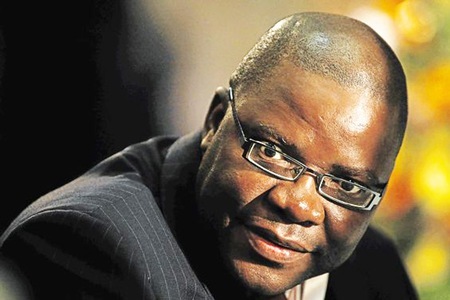
THE ramifications of Finance minister Tendai Biti’s move to control charges and interest rates were felt across the banking sector last week with executives warning that such a move would kill the industry.
NDAMU SANDU
In his 2013 National Budget, Biti decreed that no bank charges should be levied on deposits up to a maximum of US$800. Biti said any term deposit of US$1 000 and above held over a period of at least 30 days and above should attract an interest of at least 4% per annum.
He said the government would be coming up with a Statutory Instrument informed by a Memorandum of Understanding between financial institutions and the central bank stipulating thresholds of applicable fees, charges and interest rates.
The effective date of the Statutory Instrument would be January 1 2013.
Biti said lending rates would be subjected to a maximum rate of not more than 10% above a bank’s weighted average deposit rate, inclusive of all deposits.
The latest measures came at a time Biti said banks had rejected moral suasions as pleas to review bank charges and interest on both lending and deposit fell on deaf ears.
Executives who spoke to Standardbusiness said the measure had the unintended consequences of “killing the goose that lays the golden eggs”.
- Chamisa under fire over US$120K donation
- Mavhunga puts DeMbare into Chibuku quarterfinals
- Pension funds bet on Cabora Bassa oilfields
- Councils defy govt fire tender directive
Keep Reading
“Something is going to suffer big time,” an executive said warning “some banks will fail”.
“Local banks have exposure to industries as they are the ones oiling it. Biti should have acknowledged that banks that do not have capital are the ones oiling the industry.”
The executive said if Biti had sat down with bankers, they should have prescribed measures to boost the banking sector. Chief among the measures was the need for government to mobilise money to be given to locally-owned banks for on lending to the rest of the economy.
In an analysis of Biti’s policy directive on banks, leading brokerage firm MMC Capital warned that the measure was “more likely to be heavier on the smaller banks, since only five banks control about 56% of the total banking deposits”.
“The analysis of the 2012 half-year results for banks indicates that the industry average of the Net Interest Income-to-Total Income ratio stood at 45%. What this means is that banks are still leveraging more on non-core banking activities [non-interest income],” MMC said.
“The removal of bank charges means that the total income of the banks will be reduced, thus trimming profits”.
According to statistics from MMC in the half year ended June 30 2012, the total profitability for the banking sector was around US$63 million and profitability in 2013 is under extreme pressure unless, either deposits grow aggressively to offset this impact or banks are aggressive in lending.
MMC said while it was a welcome development to put interest on deposits, the move “will however, increase banks’ cost of funding which will exert further pressure on interest margins, and thus profitability”.
Analysts say the move to introduce controls on charges and interest rates was akin to the reintroduction of price controls that failed the nation.
They said Biti was dragging the sector to the bad old days of controls when government engaged in a futile war with market forces.
“It is obviously some kind of financial repression, or failure on the authorities to learn from our own history of controls,” an economist said.
Other observers felt that looking at the banking sector as troublemakers was ill-informed as there were several factors that determined interest rates.
“Higher interest rates mean that an economy is not performing in terms of exports. Banks have managed to bring interest rates down since dollarisation and the authorities are ignoring that,” an executive said.











